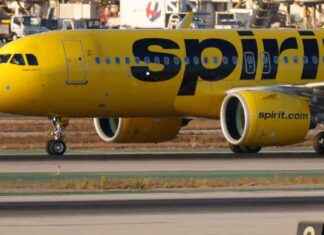Caption
Close
If the NHL doesn’t send its players to the 2018 Winter Olympics, the hockey tournament in Pyeongchang will look familiar.
It will look a lot like the Olympics in Lillehammer in 1994, Albertville in 1992 and Calgary in 1988. Maybe even a little like 1980 in Lake Placid, site of the “Miracle On Ice.”
With a year before the opening ceremony, the league, players union, International Ice Hockey Federation and International Olympic Committee still don’t have an agreement to send NHL players to their sixth consecutive Olympics. There is still time — an agreement last time around came in July before the 2014 Games in Sochi — but everyone is forming a Plan B just in case.
Russia might have Alex Ovechkin if he makes good on his intention to go no matter what. But the United States, Canada and other countries are preparing for life without the best players in the world.
If the likes of Patrick Kane, Jonathan Quick, Jack Eichel and Ryan Suter aren’t available, USA Hockey will look mostly to the college ranks. If Hockey Canada can’t take Sidney Crosby, Jonathan Toews, Drew Doughty or Carey Price, it will try to defend the gold medal with a mix of European-based professionals, North American minor leaguers and players from the Canadian junior leagues and NCAA.
“It’s a big world, and we’ve got to make sure that we’re ready to go,” Hockey Canada president Tom Renney said. “Should the NHL choose not to go, we’ll make sure we’re ready, willing and able a year from now.”
The U.S. has a fresh set of heroes after shootout star Troy Terry, defenseman Charlie McAvoy and goaltender Tyler Parsons won world junior gold last month. Mix them with top college players like Notre Dame’s Anders Bjork and Wisconsin’s Trent Frederic and ex-NHLers Keith Aucoin and Nathan Gerbe who are playing in Europe, and the Americans will have plenty of youth and experience.
Dave Starman, a former coach in the minors and now an analyst for CBS Sports, said USA Hockey’s priority should be scoring, scoring and more scoring.
“You can’t win unless you can score,” Starman said. “It’s got to have a ton of speed, it’s got to have a really high skill level, it’s got to have defensemen who can get in the play. You need a little bit of dog on bone in your lineup, but I don’t think you can sacrifice skill guys for toughness.”
No problem there for Canada, which has plenty of big, tough skill players and hasn’t waited for the IIHF to set any 2018 parameters as it prepares its contingency plan. Canada’s team for the December Spengler Cup in Switzerland could serve as a blueprint: minor leaguers Cory Conacher and Zach Fucale and European recent NHL players Daniel Paille and Nick Spaling.
While IIHF President Rene Fasel would like a final decision sooner than later to plan for South Korea, Renney said Hockey Canada could put a team together quickly. Like USA Hockey, Canada can pull from its national junior team but has more veteran talent in Europe and the American Hockey League to choose from. Former NHL goaltender Ben Scrivens in Russia’s Kontinental Hockey league is an option, for example, as is journeyman Michael Leighton, who is in the Carolina Hurricanes’ system.
Though Leighton firmly believes NHL players will go, the 35-year-old said he would “train as hard as I possibly can to get that job” if they don’t. AHL president and CEO David Andrews expects his league to be open to allowing players to go to the Olympics as long as NHL teams give individual minor leaguers permission.
“I think it’ll be an interesting question, though, for a lot of general managers because the player that is going to be asked for is going to be probably their No. 1 player outside the NHL club,” Andrews said. “They kind of face that question of, ‘Do we want our No. 1 call-up to be in South Korea for two or three weeks?'”
Some NHL owners might even give their elite players permission to go, and Ted Leonsis of the Washington Capitals has said repeatedly he’d let Ovechkin, Swede Nicklas Backstrom and Canadian Braden Holtby represent their countries, though Holtby said he would never leave the Capitals midseason. The IIHF might set roster parameters to prevent NHL players from participating, too.
Hall of Fame defenseman Mark Howe would be fine with that. After winning a silver medal playing for the U.S. in 1972, he supports amateurs because he feels the 1980 “Miracle On Ice” victory over the Soviet Union had a greater impact on the sport than professionals playing in the Olympics.
“Probably the greatest victory I think I’ve ever seen in hockey was when the 1980 team beat the Russians,” Howe said. “There was some guys on that team that never had a chance to play in the NHL or impact the NHL. That was their two weeks of fame. A guy like Mike Eruzione, Jimmy Craig — they’re phenomenal stories.”
Our editors found this article on this site using Google and regenerated it for our readers.





